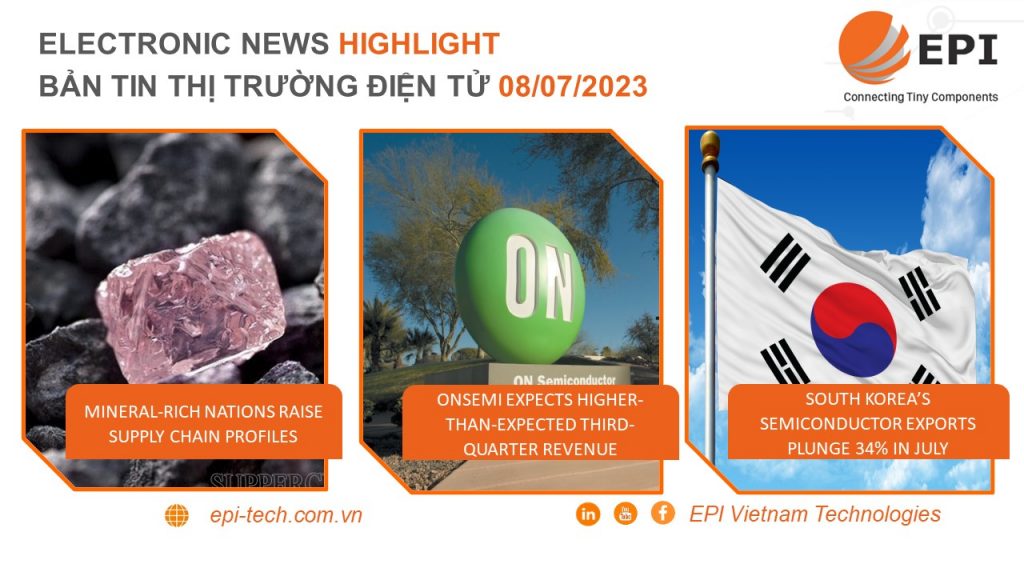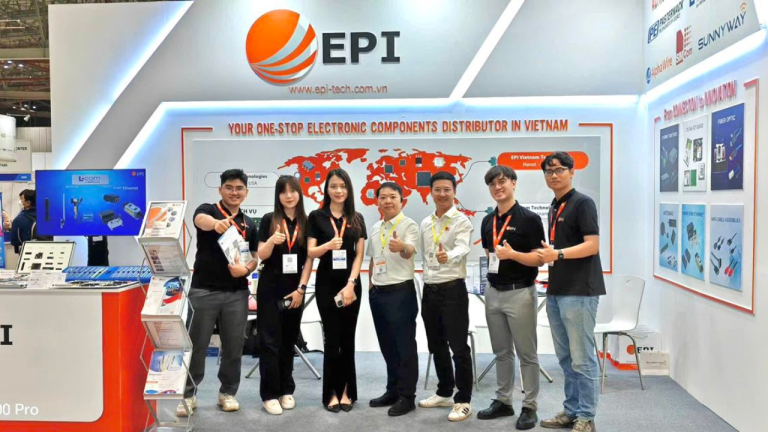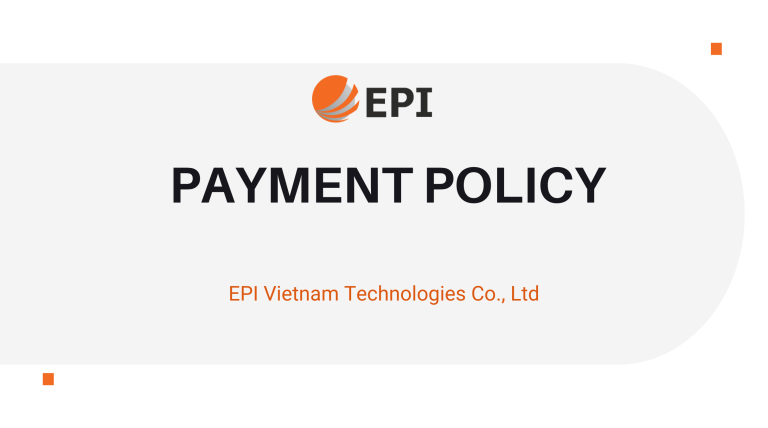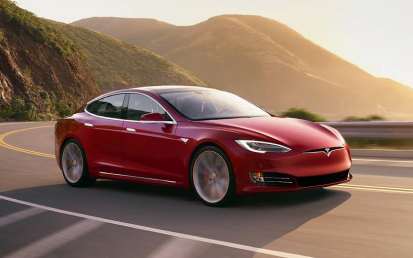ELECTRONICS NEWS HIGHLIGHTS W32.2023

1. MINERAL-RICH NATIONS RAISE SUPPLY CHAIN PROFILES
According to reports, Indonesia has produced about half of the Nickel used in EV batteries by 2022. They have enacted bans on exporting nickel abroad. This ban has forced foreign corporations to invest heavily in building Nickel processing manufactory in Indonesia. Ford Motors and China’s Zhejiang Huayou Cobalt have invested $6 billion in a new EV battery manufactory, making Indonesia an significant player in the EV supply chain.
China produces 90% of the world’s germanium and more than 90% of gallium, the key ingredient in making semiconductors that can handle high power, frequency and voltage. Gallium is important for many new applications, such as electric vehicles, the military and renewable energy. Furthermore, China is the source of nearly 60% of aluminum, which is also used in EV batteries, and 80% of polysilicon, a component in solar panels. The country also supplies more than 60% of the world’s natural graphite. According to the USGS 2023 report, the total worldwide production of graphite is 1.3 million tons, with China leading the way with 850,000 tons. While the US does not produce any graphite but consumes 72,000 tons, worth $140 million.
African countries like Tanzania and Zambia have huge copper resources. Base metal mining (copper and cobalt) contributes about 12% of their GDP. The country also has significant reserves of Nickel, manganese and gold. The introduction of many laws restricting the export of natural resources, while creating favorable conditions for taxes and labor costs, are opening up opportunities for large enterprises to consider opening production plants in these countries.
In general, mineral-rich countries are changing their business institutions to attract and force more investments to build factories in their countries. A new position in the supply chain is gradually forming and developing in these countries.
Learn more: Mineral-Rich Nations Raise Supply Chain Profiles
2. ONSEMI EXPECTS HIGHER-THAN-EXPECTED THIRD-QUARTER REVENUE
As early as May, onsemi said it plans to invest more than $2 billion to increase the production of silicon carbide chips in response to the continued growth in demand from electric vehicles. In addition, the company is considering building new plants at existing sites in South Korea, the United States, and the Czech Republic.
Onsemi CEO said that if demand continues to grow, the company is willing to build a new factory, but if it uses existing sites, it will better help the profit margin of its silicon carbide business line with the company’s profit margin.
Learn more: Results Surpassed Expectations in the Face of Headwinds
3. SOUTH KOREA’S SEMICONDUCTOR EXPORTS PLUNGE 34% IN JULY
The report cited data released by the South Korean Ministry of Trade on August 1, showing that South Korea’s exports in July fell by 16.5% year-on-year. Among them, semiconductor exports fell by 34%, which was worse than the 28% decline in the previous month. In terms of export regions, South Korea’s exports to China fell by 25.1% in July, and exports to the United States fell by 8.1%.
“Semiconductors are key to exports and we are unlikely to see a recovery until demand recovers and prices rebound. China is reducing its dependence on imports and increasing domestic production, which is putting pressure on South Korea’s exports,” the analyst said.
Global economic activity has been held back by high inflation, rising interest rates and weak demand in China. But despite this, chipmakers have begun to predict a recovery in shipments as demand picks up after a long period of stagnation.
Learn more: South Korea’s Export Slump Worsens as Chip Demand Wanes



 English
English  Tiếng Việt
Tiếng Việt 













